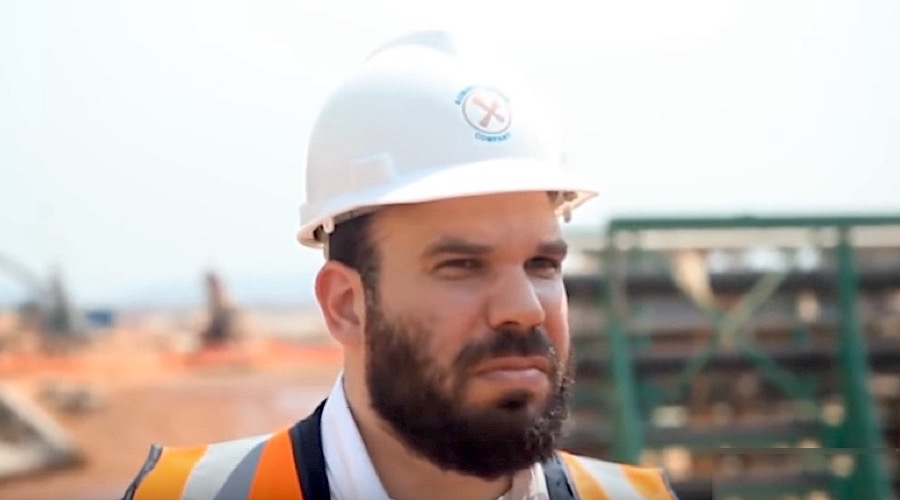Israel pushed Trump officials to lift sanctions on Dan Gertler

The Trump administration’s controversial move to ease sanctions on Dan Gertler, an Israeli mining magnate accused by the US of corruption in the Democratic Republic of Congo, came after repeated requests from Israeli officials who said he was a vital national security asset.
Both Yossi Cohen, director of Mossad, Israel’s foreign intelligence agency, and Ron Dermer, then ambassador to Washington, spoke with top US officials over many months to make the case for the value of Gertler’s connections in Africa and his philanthropy in Israel. Cohen also made two previously unreported trips to Congo in 2019 to meet with Gertler and former president Joseph Kabila, according to people with knowledge of the meetings.
Gertler “has lots of relationships in the region that are important to Israel’s interests, and he is a major philanthropist, so we did make an official request,” said Dermer, a confidant of Prime Minister Benjamin Netanyahu, in an interview with Bloomberg News. “It was not just Yossi who asked,” he added, referring to Cohen.
The decision in the final days of the Trump administration to grant Gertler a one-year reprieve in the form of a license was unannounced and unexplained. Human-rights activists, Democratic lawmakers and some former Trump administration officials who had pushed for the sanctions decried the move, which allowed Gertler to regain access to the US financial system.
The decision in the final days of the Trump administration to grant Gertler a one-year reprieve in the form of a license was unannounced and unexplained
Janet Yellen, Biden’s Treasury secretary, revoked the license this month, saying it was inconsistent with US goals of fighting corruption and promoting stability in Congo, a mineral-rich country that is one of the poorest in Africa.
Cohen’s visits to Congo were unusual. His predecessor, Tamir Pardo, spent five years as head of Mossad and visited Africa once, never setting foot in the country, where Israel has no embassy.
Cohen didn’t tell Congo President Felix Tshisekedi of his meetings with Kabila beforehand, according to two of the president’s aides. When Tshisekedi found out that he saw Kabila, who had stepped down in early 2019 but remained a power broker and political rival, he complained to Cohen and told him he wasn’t welcome to continue having such meetings in Congo.
The Israeli prime minister’s office, which speaks for Mossad, declined to comment. A spokesman for President Tshisekedi said he couldn’t immediately respond to questions.
The US sanctions against Gertler, imposed at the end of 2017, described him as a middleman between Kabila and multinational companies in a series of corrupt deals that robbed the Congolese people of hundreds of millions of dollars.
Gertler’s value to Israeli and US national security in Africa is unclear. In making the case for easing sanctions, his advocates said he has his ear to the ground across Central Africa and can help Israel and the US gather intelligence on terrorists and the growing Chinese influence in the region.
Israel has stepped up its business and diplomatic activities on the continent over the past five years. Netanyahu has made three trips since 2016, restoring relations with Chad and Sudan. Some people familiar with the Gertler case say he played a role in both breakthroughs.
But Dore Gold, the director-general of Israel’s foreign ministry in 2016 who led the country’s effort with Chad, said by telephone that he never heard Gertler’s name during the course of his work. Gold, who now runs a research institute in Jerusalem, said Israel’s interests in Africa are expanding rapidly and that Gertler could be playing a role.
Alan Dershowitz, one of Gertler lawyers, also argued that until the sanctions, Gertler, 47, donated millions of dollars a year to charities in Israel and that removing the sanctions would restore those donations. Dershowitz said the goal is still to have the sanctions ultimately lifted.
The one-year license issued by the Treasury Department’s Office of Foreign Assets Control, or OFAC, the same agency that imposed the sanctions, allowed Gertler access to his dollar accounts. Marshall Billingslea, assistant secretary for terrorist financing under President Trump who played a key role in setting up the sanctions, assailed the easing of restrictions.
“It was directly because of our sanction actions against Gertler that we deterred his partner in crime, Joseph Kabila, from trying to change the constitution in the Congo and that led to elections and Kabila’s ouster and the return to some semblance of democracy in the country,” Billingslea said on a Feb. 25 Hudson Institute podcast. “His actions are truly appalling, as is the license issued by OFAC. I was astounded to see that occur and many fine career policy makers in Treasury were completely blindsided by that action.”
Kabila and Gertler have repeatedly denied engaging in corrupt transactions.
The decision to issue a license, as opposed to a full removal of sanctions, permitted Trump officials to truncate formal inter-agency consultation, which would have met with protest from policy makers at Treasury and State.
Former Secretary of State Mike Pompeo declined through a spokesman to comment. Former Treasury Secretary Steven Mnuchin didn’t respond to inquiries.
Tshisekedi, who is eager to improve relations with Israel, has been trying to reduce Kabila’s power and influence as well as Gertler’s. He was supposed to visit Jerusalem in February but postponed the trip because of Covid.
Gertler began trading Congo diamonds in the late 1990s when the nation was in the middle of a civil war. His companies now hold royalties and stakes in mining and oil ventures, including copper and cobalt projects run by Glencore Plc and Eurasian Resources Group. Congo is the world’s largest producer of cobalt, an essential mineral in the batteries that power electric vehicles.
(By Ethan Bronner, with assistance from Michael J. Kavanagh, Nick Wadhams, Saleha Mohsin and Yaacov Benmeleh)
{{ commodity.name }}
{{ post.title }}
{{ post.date }}




Comments